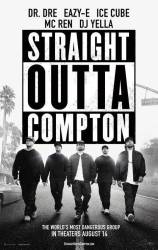
Question: Why did Suge Knight hate Jerry so much? They didn't even talk to each other at all in the movie.
Answer: Suge Knight saw Jerry as a threat, and rightfully so. He had control over E and the others, and knew far more about the business than he did. Which meant he had power, something Suge wants complete control of.
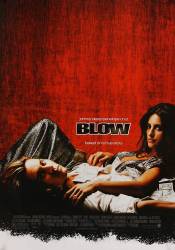
Question: Considering how small her role was (in relation to the film's running time), why did Penelope Cruz earn second billing behind Johnny Depp?
Chosen answer: A star's screen time does not equate to what position they are billed at on a film. It generally relates to the selling power of their name. The film's main star would obviously be Depp. Cruz however would still be higher than people like Liotta, Reubens, etc. as her name is more known. It also helps with selling the film to audiences than just a one actor film.
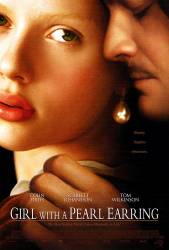
Question: Does Greit say yes when Peiter asks her to marry him? I couldn't work this out.
Answer: Obviously, since she married him in the end.
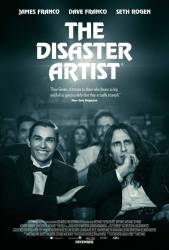
Question: The producer in the restaurant scene, played by Judd Apatow, who rudely tells Tommy that he's never going to make it big - was he a real person? If so, did he ever see "The Room" and bump into Tommy since?
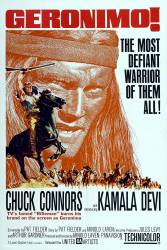
Question: When the jug was hit, how did the bullet not hit the horse behind it?
Answer: In reality, the bullet probably would have hit the horse, injuring it. Movies tend to gloss over details like that to serve and simplify the plot. Older movies particularly fudged reality, assuming audiences would not notice or care. It is also possible that the bullet was somehow deflected or broke up upon impact.
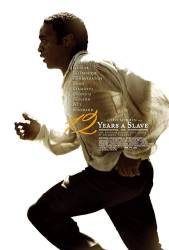
Question: In one of the very first scenes set in one of the plantation slave huts, Solomon is struggling to sleep. He is sleeping on the floor squashed amongst many other slaves. During this scene, what looks like a white youngish woman encourages him to touch her. A little earlier we see her sitting on the porch of the slave hut eating alone whilst the slaves are eating. As far as I could tell, she doesn't appear again in the film. Who is she? Does she play a greater role in the book? Was there more of a story here that ended up on the cutting room floor?

Question: Who did the actual piano-playing for the movie? I'm sure it couldn't have been Michael Douglas.
Chosen answer: Michael Douglas was not playing the piano himself. Special effects were used to digitally graft Douglas' head onto the body of Philip Fortenberry, a Julliard-trained pianist who also once played at the now-closed Liberace Museum in Las Vegas.
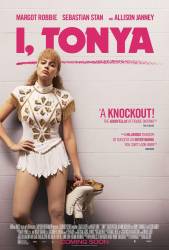
Question: Did people actually care about figure skating? I wasn't alive when this happened, but apparently it was one of the biggest sporting controversies of all time. Well I find that quite hard to believe, since before this movie came out, I'd never heard anyone talk about figure skating, I barely even knew what it was. Was figure skating ever actually a big thing, or do people just like controversy?
Answer: It used to be a lot more popular. The Harding/Kerrigan Winter Olympic figure skating competition was the 6th highest rated program in TV history as of 1994, with 48.5 million viewers, no doubt helped by the controversy. It's slowly declined over time - from 1998 to 2018 viewing figures for the US championships declined by 1/3. Opinions about its loss of appeal range from a change in the scoring (used to be judges rating out of 6.0, now it's a more complicated points system), to a lack of "star power", with recognisable names grabbing people's attention. In the UK at least, skater team Torville and Dean were household names for a long time, but I'd imagine a lot of people would struggle to think of skaters with that level of popular recognition nowadays. That said, viewing figures for the 2018 US championships were 60% up on 2017, and membership of the US figure skating organization has risen for the last four years - these things wax and wane like any other.
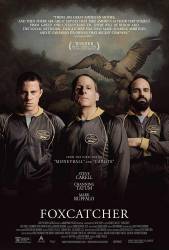
Question: Dave Schultz trained Kurt Angle. Did Kurt (or at least someone playing him) appear in the film?
Answer: No actor is credited for the role of Kurt Angle, and there are no overt references to him in the film.
Thank you.
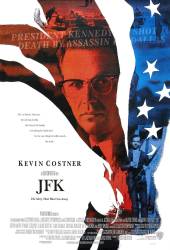
Question: Why does Gary Oldman speak with a Russian accent when Lee Harvey Oswald was from New Orleans?
Answer: Lee Harvey Oswald was very sympathetic to the communist ideal, and lived in Russia for a while. He probably adopted the accent as an affectation towards that end.
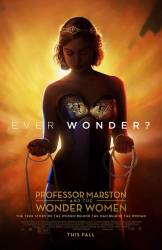
Question: Assuming people knew, how did Marston avoid trouble for living with two wives?
Answer: Though it may be considered immoral and socially unacceptable, particularly during the film's 1940s time frame, it is not illegal to live with multiple people in a sexual relationship. It is only illegal to be married to more than one person at the same time. Marston was not a bigamist. He was legally married to his wife, Elizabeth. They engaged in a consensual polyamorous (not polygamous) relationship with Olive, who was not married to Marston.
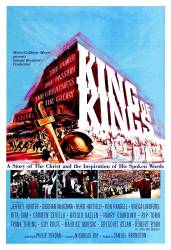
Question: How did anyone ascertain that Orson Welles read the spoken narrative in this film and that it was written by Ray Bradbury? Similarly, how did they come to know that Agnes Moorhead coached Jeffrey Hunter with dialogue? None of these persons feature in the credits though things like the choreography for Salome's dance are printed.
Answer: In the introduction he wrote for Ray Harryhausen's book, 'Film Fantasy Scrapbook', Bradbury mentions writing Orson Welles' narration for 'King of Kings'. A number of online sources cite Agnes Moorehead as coaching Hunter on the post-filming dialogue. She had years of experience performing in radio drama and had a Master's degree in Public Speaking. She likely coached other actors. Not every person involved in a film's production is credited and a voice coach is not a particularly significant role, even for a notable actress. Bradbury was not the screenwriter and only wrote the narration. Scripts often have multiple writers (i.e. script doctors) who are uncredited. Welles demanded more money to allow his name be listed in the cast credits, so the studio left him uncredited. Even uncredited, his voice is quite recognizable.
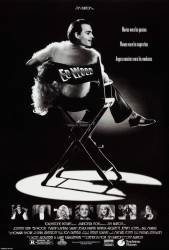
Question: Does anyone know why this is the only Tim Burton film for which Danny Elfman hasn't written the score? All I can think is that time-wise it might have clashed with Black Beauty, but I'd like to know a definite reason.
Chosen answer: According to Tim Burton in an interview at the time, they were "taking a little vacation from each other", - he also said that he was not sure what the situation between them was, which certainly implied a falling out. Danny Elfman is a bit more open, describing what happened as "a family feud" - he says that after working on six films together in ten years, they had a bit of a creative fallout, which led to Howard Shore doing the music for Ed Wood. Afterwards, according to Elfman, they realised that they missed working together and went back to collaborating happily.
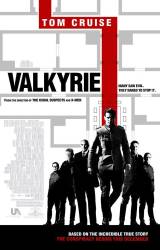
Question: Why did all of the officers and high-ranking officials put out their cigarettes when Hitler's plane landed at the airfield?
Answer: Hitler was fanatically anti-tobacco: https://www.theatlantic.com/health/archive/2014/07/the-nazis-forgotten-anti-smoking-campaign/373766/.
Answer: They are supposed to stand at attention when he arrives and salute when he walks past them. It is considered bad form to salute the Führer (or any leader) with a cigarette in your mouth or hand.
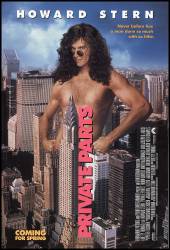
Question: Did that woman really manage to put that huge sausage down her throat or was it really good cgi?
Answer: She actually can do it, and became somewhat famous for it. She was on the Howard Stern radio show, and WOR-TV show several times.
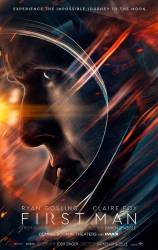
Question: A lot of fuss was made over the omission of the lunar flag planting in this movie. However, when I saw the movie in the theater, I distinctly remember seeing the flag on the moon, just not the actual planting. However, that particular shot seems to be missing in the home video release. Does anyone know the reason for this?
Answer: The home release includes a clear shot of the lunar lander with the American flag next to it.
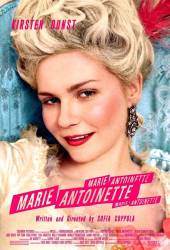
Question: Why wasn't it acceptable for Marie to breastfeed her daughter?
Answer: It was typical for royalty and the aristocracy to remain extremely "hands off" regarding child rearing. Nannies, wet nurses, and tutors tended to all their offsprings' needs, and parents usually spent relatively little time with their children. It would be considered extremely odd for a queen to engage in something so personal and common as breastfeeding her child.
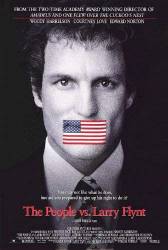
Question: When Althea visits Larry in jail, she holds up a small notebook for a split second with something written on it. Does anybody know what it said?
Answer: It says "Can you guess where my finger is?"
Answer: It says, "Larry, where is my finger?"
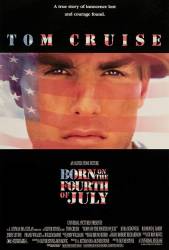
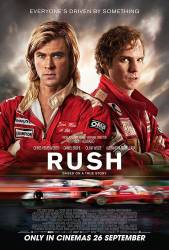
Answer: He doesn't see anything. He hears his blood dripping back into the makeshift machine the doctors have set up and realizes it isn't working properly. In the previous scene he was told that if they couldn't get the machine to work, he would never walk again.
No, in the previous scene he was told that if they couldn't get the machine to work, he would lose his leg. He was already told he would never walk again.